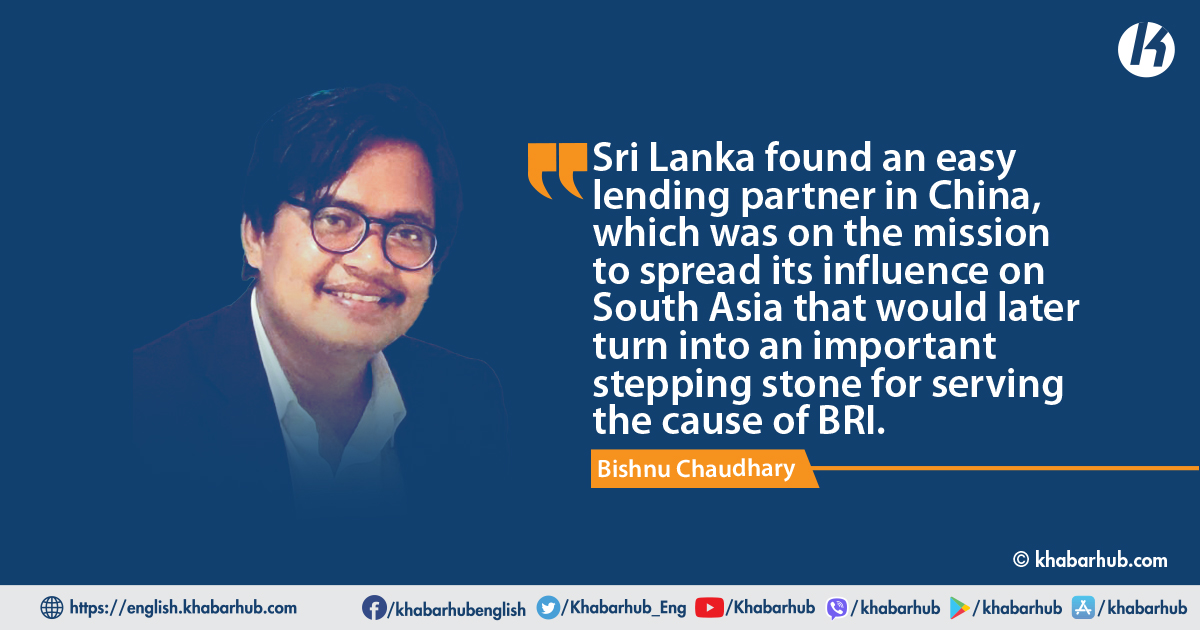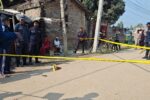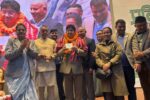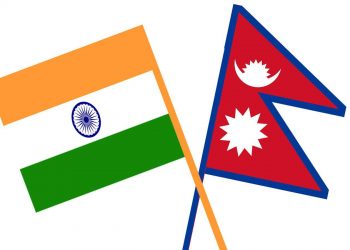KATHMANDU: V for Vendetta is one of my favorite movies and the one that I revisit from time to time. The reason I am fond of this dystopian cinema is not only the impressive line its protagonist V delivers but also the idea of how powerful the solidarity among general people can prove when it comes to overthrowing the overbearing government.
The world has seen this becoming reality, from time to time, from the French Revolution to the Arab Spring of 2011.
Last Saturday, the world saw yet another such event in Colombo when the angry Sri Lankans stormed the presidential palace toppling the Rajapaksa government.
The Rajapaksa Dynasty at Fault
Gotabaya Rajapaksa, the fleeing President is the younger brother of Mahinda Rajapaksa who also served as the Sri Lankan President earlier.
Most recently Mahinda Rajapaksa was serving as Prime Minister alongside his president brother and resigned just a few days before in a similar situation when his official residence was surrounded by an angry mob.
The Rajapaksa brothers rose to power after Mahinda won the presidential election in 2005. His younger brother Gotabaya renounced his American citizenship and joined Mahinda’s government as Defense Minister.
The Sri Lankan government in its attempt to reduce the outflow of its foreign currency restricted the import of chemical fertilizers and emphasized 100 % organic products.
Together, they waged a bloody war against the Tamil separatists and finally defeated them after their three decades of armed struggle against the Sinhalese government.
Gradually, they consolidated the state power, and admitted family members into important government positions such as Basil Rajapaksa and Chamal Rajapaksa, two younger siblings were appointed as Minister of Economic Development and speaker respectively.
Together, they engaged in reckless embezzlement of the state funds piling luxury homes, and artworks and amassing multi-million dollar bank accounts in offshore countries (International Consortium of Investigative Journalists and Pandora Box). According to Al Jazeera, the Rajapaksa family at one time controlled 70% of the entire national budget.
They found an easy lending partner in China, which was on the mission to spread its influence on South Asia that would later turn into an important stepping stone for serving the cause of BRI.
The extravagance and luxury lifestyle of the family kept Chinese money flowing into Sri Lanka, making China one of the largest creditors, accounting for roughly around 10 percent of the entire debt.
The Chinese loan was so huge that the Sri Lankan government under Maitripala Sirisena (after the Rajapaksas were earlier voted out in 2015) unable to pay it, leased the strategically important Hambantota port to China for 99 years.
Unfortunately, the darker days for Sri Lanka weren’t over yet. The terrorist attacks of 2019 on Easter Sunday that killed more than 250 people kindled the nationalist fervor and reestablished Rajapaksas back into government.
The brother again positioned the family members and relatives in the important ministries regardless of their understanding of the job.
As a populist act, the Rajapaksa government introduced tax cuts in December 2019 reducing VAT from 15 % to 8 % and wholly removed the national building tax, withholding tax and capital gain tax which had existed earlier at 2 %.
The downward spiraling of Sri Lankan Economics
The first sign of the looming crisis in Sri Lanka appeared when its Foreign Exchange Reserve dwindled. Between January 2020 and July 2021, its foreign reserve was reduced from 7.5 billion USD to 2.8 billion USD.
As a result, Sri Lanka had to devalue its currency twice in a short time. The second reason for the crisis is the dwindling tourism industry which accounts for 10 % of the national GDP.
If the Rajapaksas had not undermined the true spirit of democracy and had constrained their penchant for extravagance and lavish lifestyle through national debts.
According to the Sri Lankan Central Bank, the tourism industry collected 4.4 billion USD in 2018. As the Covid-19 pandemic hit, the revenues generated from it reduced to 3.6 billion USD in 2019 and further to a mere 53.4 million USD (Aparna Shandilya, Republic world.com, 2022). The third reason is the fall in the volume of export products.
The Sri Lankan government in its attempt to reduce the outflow of its foreign currency restricted the import of chemical fertilizers and emphasized 100 % organic products.
The result backfired; production of tea- a major export commodity fell by 18 % and the cereal output plummeted by 43 %.
More money was spent on importing food grains. Sri Lanka, which had exported 19.43 billion USD worth of products in 2019 fell to 13.03 billion USD in 2020 (macrotrends.net). The fourth reason is large foreign debt obligations.
The previous Mahinda Rajapaksa government, during the civil war and between 2004 and 2015 borrowed external debt of about 14.06 billion USD (C.P. Chandrasekhar, Crisis in Island Economy, April 2022). At the end of March 2022, Sri Lanka had 7 billion USD in external debt service payments against 1.9 billion USD in foreign reserves (Soumya Bhowmick, ORF, 21 June 2022).
Inflation
According to central bank governor P Nandalal Weerasinghe inflation currently stands at around 30% and is expected to hit 40% in the next couple of months.
Over the past four months, the price of a cooking gas cylinder has skyrocketed from $7.50 to $13.25 – an increase of more than eight-fold. Similarly, milk powder prices have gone up by 12.5% (BBC, May 2022).
In the current situation in Sri Lanka, the Rajapaksa family may, without doubt, argue that it is not only themselves to blame and that anybody in this situation would have succumbed to the crisis.
But, everyone understands that given the Rajapaksa family did not run the whole nation like a family business, but on the contrary, took necessary consultations in delivering the State policies and decision making, this ghost could have been thwarted.
If the Rajapaksas had not undermined the true spirit of democracy and had constrained their penchant for extravagance and lavish lifestyle through national debts.
(The author is a Section Officer at the Federal Parliamentary Committee of Education and Health, Singha Durbar)









Comment